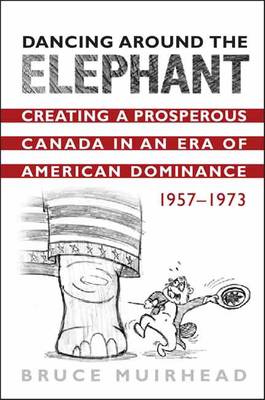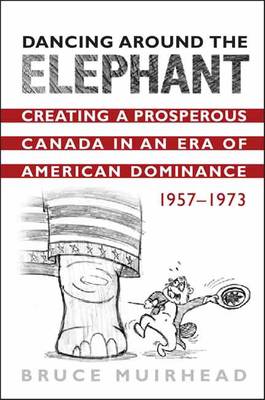
- Afhalen na 1 uur in een winkel met voorraad
- Gratis thuislevering in België vanaf € 30
- Ruim aanbod met 7 miljoen producten
- Afhalen na 1 uur in een winkel met voorraad
- Gratis thuislevering in België vanaf € 30
- Ruim aanbod met 7 miljoen producten
Dancing Around the Elephant
Creating a Prosperous Canada in an Era of American Dominance, 1957-1973
Bruce MuirheadOmschrijving
A generation of Canadian historians has viewed the mid-twentieth century as an era when Canada gave ground to the United States in most areas of foreign trade policy. In Dancing around the Elephant, Bruce Muirhead elegantly and cogently disputes this view.
Drawing on extensive archival research, Muirhead notes a number of cases where Canadian policy makers actually got the better of their American counterparts, such as the Auto Pact, and examines contextual reasons for the pessimistic view of Canada's trade position and hostile scepticism of American dominance: the rise of Canadian nationalism, the growth of anti-Americanism (based largely on the American role in Vietnam), and the election of Pierre Elliot Trudeau as prime minister in 1968. Muirhead also dispels the myth that the poor relationship between Prime Minister John Diefenbaker and President John F. Kennedy served to wreak havoc on Canadian-American relations, clearly demonstrating its lack of effect on trade patterns.
While not disregarding a number of trade failures - particularly with the United Kingdom and Europe - Dancing around the Elephant refutes the position of those who question Canada's economic independence in the mid-century and will prove tremendously controversial with economic historians and those who study Canadian nationalism.
Specificaties
Betrokkenen
- Auteur(s):
- Uitgeverij:
Inhoud
- Aantal bladzijden:
- 360
- Taal:
- Engels
Eigenschappen
- Productcode (EAN):
- 9780802090164
- Verschijningsdatum:
- 5/05/2007
- Uitvoering:
- Hardcover
- Formaat:
- Genaaid
- Afmetingen:
- 162 mm x 230 mm
- Gewicht:
- 657 g

Alleen bij Standaard Boekhandel
Beoordelingen
We publiceren alleen reviews die voldoen aan de voorwaarden voor reviews. Bekijk onze voorwaarden voor reviews.











